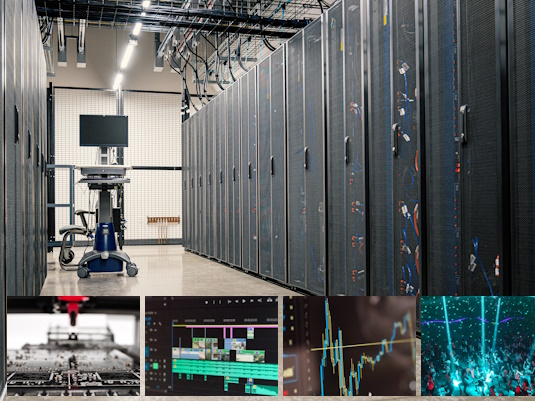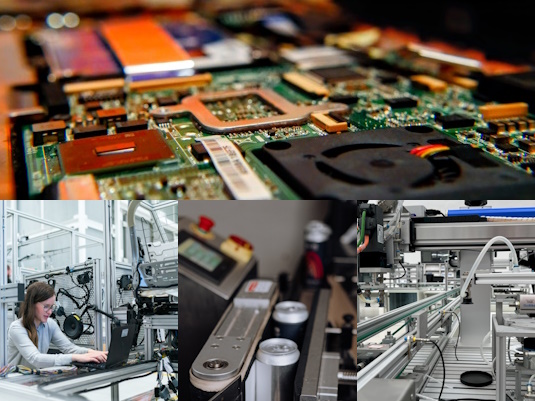Industrial control
- Project
- Industrial control
Case 2: Industrial computer CPUs and GPUs use aluminum alloy cooling modules
Question
In industrial environments, industrial computer CPUs and GPUs face challenges of high load and long running times. Excessively high temperatures may cause hardware damage, performance degradation, and system instability, thereby affecting production efficiency.
Countermeasures
Using aluminum alloy heat dissipation modules is an effective way to solve these problems. Here are some ways to deal with the problem:
- Install aluminum alloy heat dissipation module:
Choose an aluminum alloy heat dissipation module with excellent heat dissipation performance, which can efficiently dissipate heat from the CPU and GPU and maintain a stable operating temperature. - Provide sufficient space and ventilation:
Make sure there is enough space in the industrial computer case to install the cooling module, while ensuring good air circulation and cooling system. Proper fan configuration and ventilation design can effectively reduce temperatures. - Regular inspection and maintenance:
Regularly check the cooling module and fan to remove dust and dirt to ensure that their cooling effect and operating condition are good.
Benefits
- Improving the stability and reliability of industrial computers to ensure they can run for long periods of time without being affected by overheating issues.
- Reduce the risk of hardware damage and failure, reduce repair and replacement costs, and improve production efficiency.
- Provide reliable cooling performance to ensure that the CPU and GPU maintain good performance under high-load applications.
- Increase the service life of industrial computers and reduce maintenance costs and downtime.

To sum up, the use of aluminum alloy cooling modules can effectively solve the overheating problem of industrial computer CPUs and GPUs and improve stability, reliability and production efficiency. This will result in continued reliable operation and superior performance for applications in industrial environments.
Case 1: Industrial computer control using cooling modules
Question
Industrial computer control is prone to overheating problems during long-term operation, which may lead to performance degradation, system crash or malfunction. This has a negative impact on production operations and productivity.
Countermeasures
The use of cooling modules is an effective way to solve the overheating problem of industrial computer control. Use the following strategies to deal with the problem:
- Choose a suitable cooling module:
Choose a suitable cooling module based on the size, heat generation and cooling needs of the industrial computer. This can include cooling elements such as cooling fins, heat sinks, fans, etc. to ensure effective cooling performance. - Regular cleaning and maintenance:
Regularly check and clean the cooling module to remove dust and dirt and ensure smooth air flow. This helps improve cooling and prevents radiator clogging. - Optimize air circulation:
Ensure that the space surrounding the industrial computer control has good air circulation. Avoid blocking other objects from the air inlet and outlet of the heat dissipation module to ensure maximum heat dissipation effect.
Benefits
- Improve the stability and reliability of the system and reduce the risk of system crashes and failures.
- Extend the service life of industrial computer controls and reduce maintenance and replacement costs.
- Improve work efficiency and reduce performance degradation and downtime caused by overheating.
- Protect other critical components, such as processors and memory, from overheating.

To sum up, the use of cooling modules can effectively solve the overheating problem of industrial computer control, improve the stability and reliability of the system, and reduce maintenance and replacement costs. This will help improve production efficiency and ensure smooth production operations.